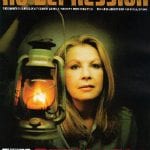Patty Loveless – Down from the mountain
Patty Loveless was eleven years old when her parents picked up and left their home in Pikeville, a small mining town in southeastern Kentucky, to rent a place a couple hundred miles west in Louisville.
It was hardly a happy move. Patty’s father, John Ramey, had taken seriously ill and needed medical attention; he’d quit the mines some years earlier, but not before coal dust had settled in his lungs.
Money was tight, as well. All that John and his wife Naomi had to feed and clothe the three kids (out of seven) and one niece who still lived at home with them were his monthly black-lung and Social Security checks.
Then there was the isolation. Apart from the four grown children who had gone ahead of the rest to Louisville, the move marked the first time any member of the family had lived far from Pikeville, the place where, for generations, Rameys and Bolins (Patty’s mother’s kin) had raised their children, worked in the mines, and buried their dead.
As if all this wasn’t enough, Patty’s parents took their brood out of the countryside at a time when virtually every urban center across the United States was in turmoil. It was 1968: The nation was rife with conflicts over the Vietnam War, the ERA and civil rights (and, after the Stonewall Riot of the following year, gay rights).
The mix of loneliness and alienation they felt in the strange new city that would never be home to them was shattering — particularly for Patty, who by her own admission was shy and had a hard time making friends at school. Determined to lift his youngest daughter’s spirits, John Ramey took $100 of the money he didn’t have and bought her a small Epiphone guitar. He also paid for her to take a few lessons.
That instruction was short-lived — Patty was impatient, bent on learning chords when her teacher insisted she start with notes — but it wasn’t long before she was sussing out the changes to the latest hits by Dolly Parton and Loretta Lynn. And writing songs. Some echoed what she heard on the radio, but most were inspired by the older-sounding music of her parents: The tunes of Bill Monroe and Molly O’Day and Kitty Wells that Patty’s mother sang while working around the house, or the Stanley Brothers and Flatt & Scruggs records her dad played on the family phonograph.++++++++++++++++++++++++++++++++++++++++
This is an excerpt of the full article which appeared in The Best of No Depression: Writing About American Music, which features 25 of the finest articles from the magazines back issues, and was published in 2005 by University of Texas Press to help celebrate the magazines 10th anniversary. Due to our agreement with UT Press we are unable to include this article in our online archive.
The Best of No Depression is the only place you can find these articles other than our back issues. Visit the No Depression store to buy your copy for only $10.
The 300-page volume includes co-editor Grant Aldens award-winning 2001 feature on Billy Joe Shaver, co-editor Peter Blackstocks 1998 Artist of the Decade piece on Alejandro Escovedo, senior editor Bill Friskics-Warrens 2002 cover story on Johnny Cash, contributing editor Paul Cantins deep exploration of Yankee Hotel Foxtrot-era Wilco; and many other high points from our print heyday.
Table of contents for The Best of No Depression:
Preface, by Grant Alden and Peter Blackstock
Los Lobos, by Geoffrey Himes
Alejandro Escovedo, by Peter Blackstock
Jon Dee Graham, by Peter Blackstock
Billy Joe Shaver, by Grant Alden
Ray Wylie Hubbard, by John T. Davis
Flatlanders, by Don McLeese
Ray Price, by David Cantwell
Johnny Gimble, by Bill C. Malone
Johnny Cash, by Bill Friskics-Warren
Rosanne Cash, by Lloyd Sachs
Lucinda Williams, by Silas House
Buddy & Julie Miller, by Bill Friskics-Warren
Kasey Chambers, by Geoffrey Himes
Loretta Lynn, by Barry Mazor
Patty Loveless, by Bill Friskics-Warren
Kieran Kane, by Peter Cooper
Paul Burch, by Jim Ridley
Hazel Dickens, by Bill Friskics-Warren
Gillian Welch, by Grant Alden
Ryan Adams, by David Menconi
Jay Farrar, by Peter Blackstock
Jayhawks, by Erik Flannigan
Wilco, by Paul Cantin
Drive-By Truckers, by Grant Alden
Iron & Wine, by William Bowers




